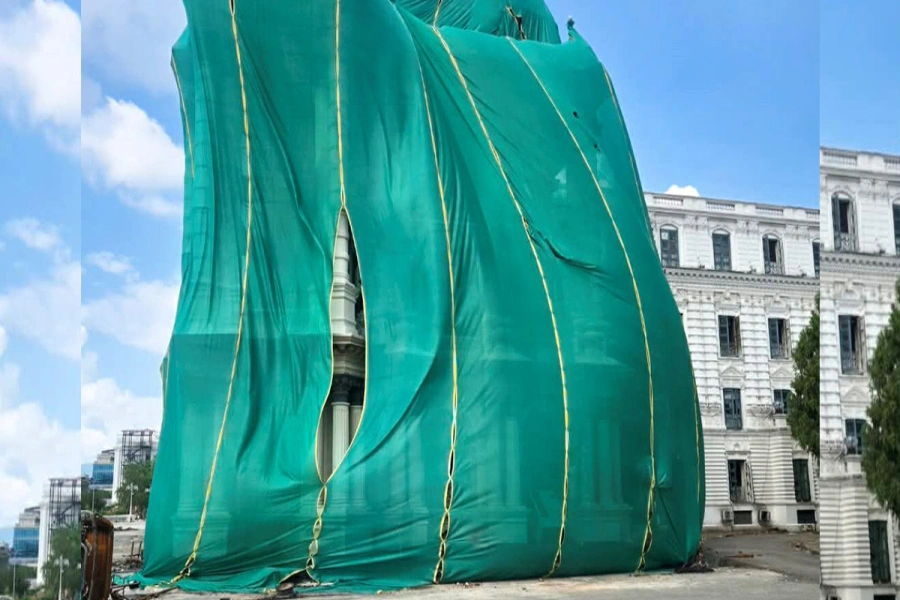KATHMANDU, August 2: The Bill to amend the Nepal Citizenship Act 2063 passed by both houses of the Federal Parliament has now reached the verification stage. The pressure to stop it has increased as it will take the form of an Act after being approved by the President. According to analysts, the provision of the constitution that the president can stop the bill means that the bill should be people-friendly.
The President is in a situation where the provision of immediate citizenship if a foreign woman marries a Nepali man is controversial and can be sent back saying that it needs to be reconsidered. If the President sends the bill back to parliament, the parties will be facing a moral obligation to amend the bill. However, experts say that if foreign daughters-in-law are given Nepali citizenship and 'voting rights' upon marriage in Nepal by the power of the state, this will have a long-term impact on national politics rather than citizenship as a symbol of political culture. Experts also say that if a foreign woman marries a Nepali man and gets Nepali citizenship, even people from countries that are prohibited from entering a country can enter the prohibited country by marrying a Nepali man.
President in mood to send Citizenship Bill back to parliament

Voices are being raised that the president should return the bill after a thorough study of such various issues and show the objective basis. The largest party in parliament, the CPN-UML has also strongly disagreed with this provision of the bill. Due to this, there is moral pressure on the president to send the bill back to parliament for a review. It is stated in Article 113 (3) of the Constitution about the powers of the President. If the President feels that it is necessary to reconsider a bill other than the bill submitted for verification, within 15 days of the submission of such a bill, she shall send the bill back to the house from which it originated, along with a message.
It is stated in Article 113 (4), that if the President returns a bill with a message, both Houses reconsider such bill and pass such bill as presented or with amendments and resubmit it, the President shall certify it within 15 days of its submission. A jurist said, "Why was this provision of the constitution put in place? If the constitution says that the president is the head of state of Nepal, then it has been mentioned that s/he will perform his/her duties according to this constitution and the federal law, and it has been said that the main duty of the president is to follow and protect the constitution. Since the president is raised as a common person in the constitution, if the matter to be reconsidered is mentioned and sent back, it becomes mandatory to amend it.”
Earlier, President Bidya Devi Bhandari had sent the Passport Bill back to parliament. The Passport Amendment Bill passed by the House of Representatives said that the National Assembly did not take any decision within 60 days, and the House of Representatives sent it directly to the President's Office for verification. The bill, which should be passed by both the houses, was sent back by the President saying that only the House of Representatives had passed it. Former President Ram Baran Yadav, too, had sent the ordinance amending the Nepal Act and another ordinance related to the election to the Constituent Assembly members during his tenure. According to the provisions of the Constitution of the Kingdom of Nepal 2047, the king used to return controversial bills. Article 71 (4) of this constitution said, "If any Bill is sent back with a message from His Majesty, it shall be reconsidered by a joint sitting of the two Houses and if the Bill so reconsidered is again passed as it was or with amendments, and it is again presented to him, His Majesty shall assent to that Bill within thirty days of such presentation.”
Similarly, the ‘patriotic citizens group’ has demanded an amendment to the Bill to amend the Nepal Citizenship Act 2063, which has been passed by the Federal Parliament and has gone to the President's office for verification. The group said at a press conference on Monday that some provisions in the bill are against the national interests.







































